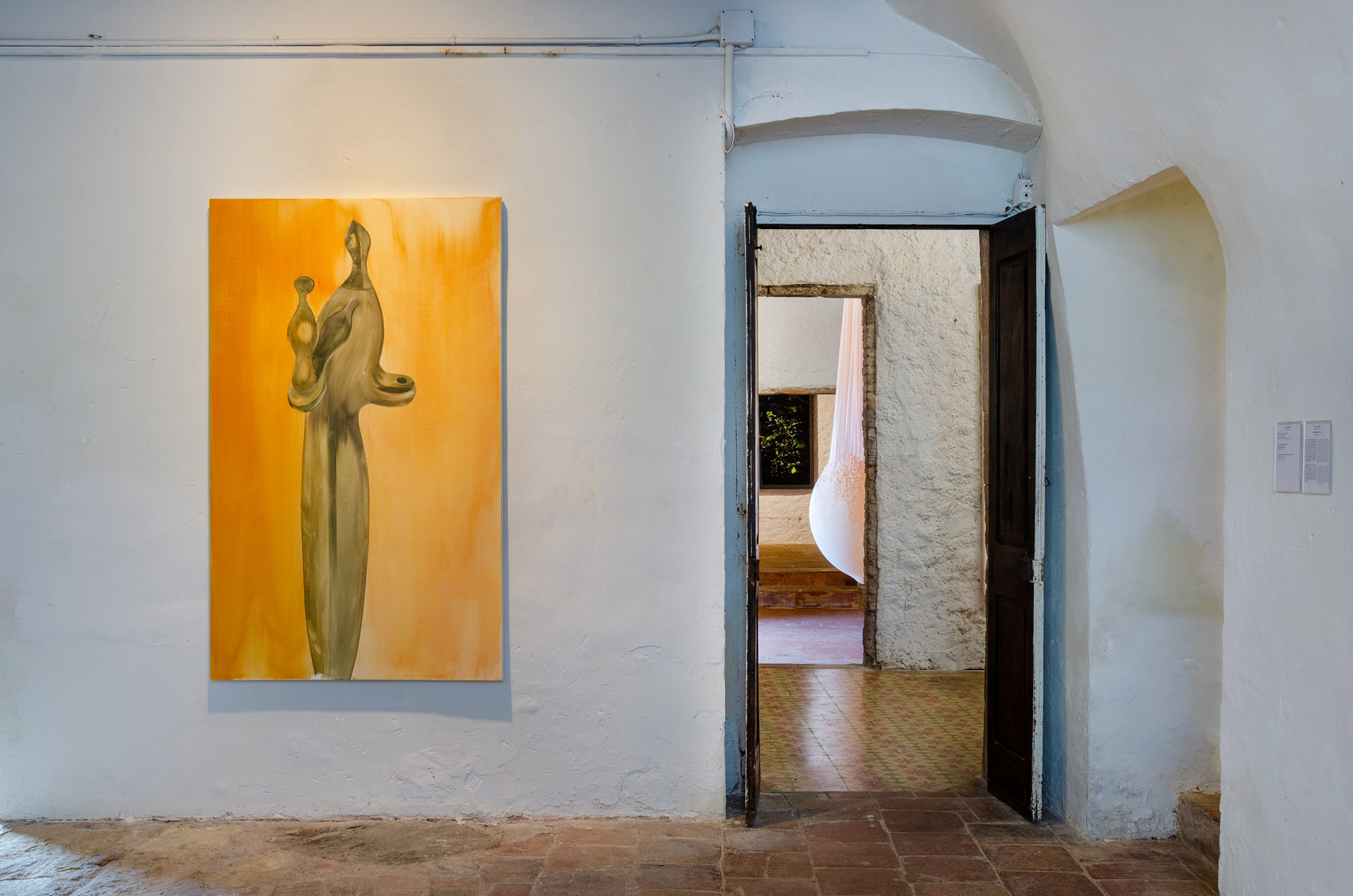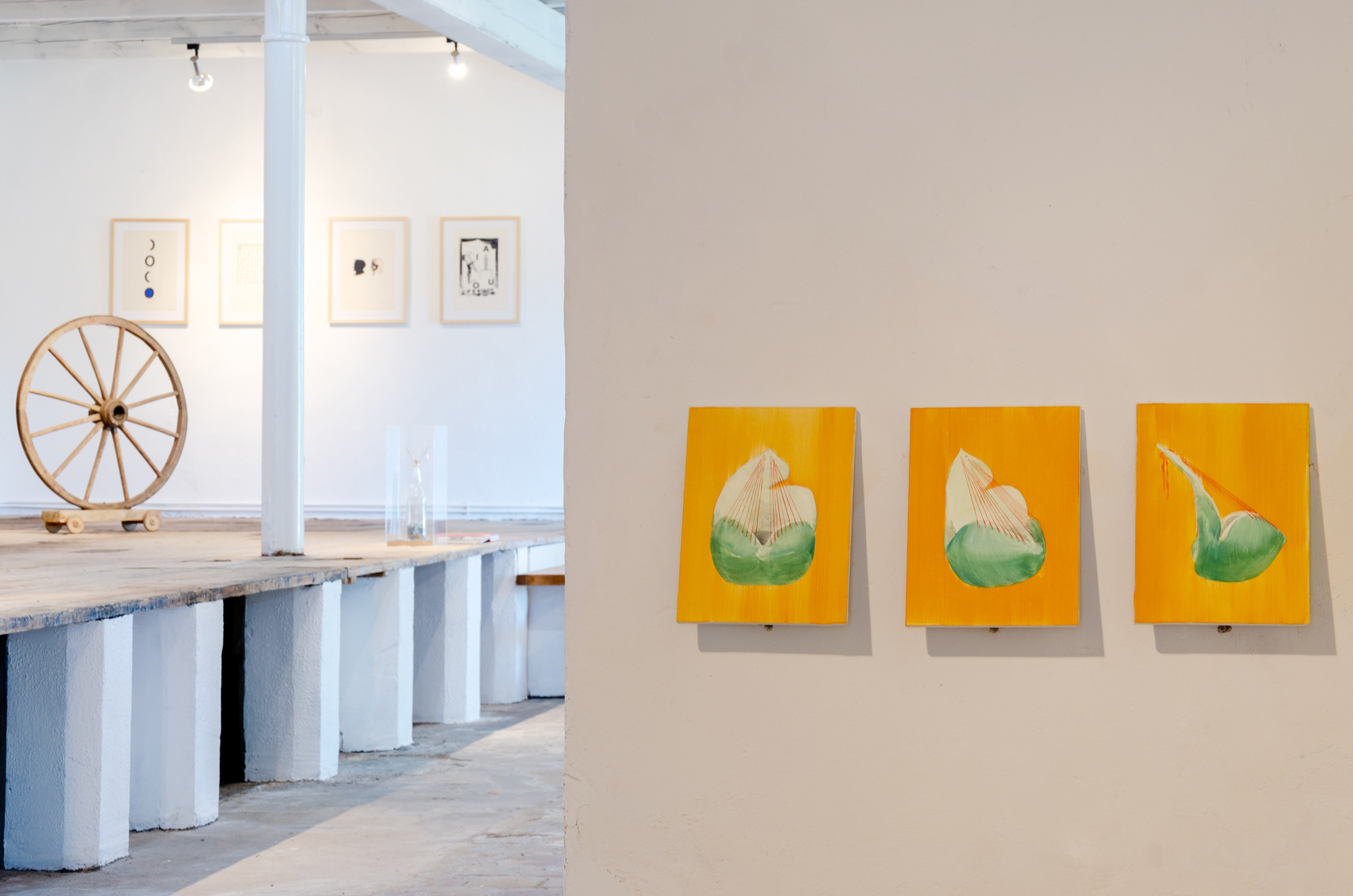22 June – 31 August 2024
La Bisbal d'Empordà
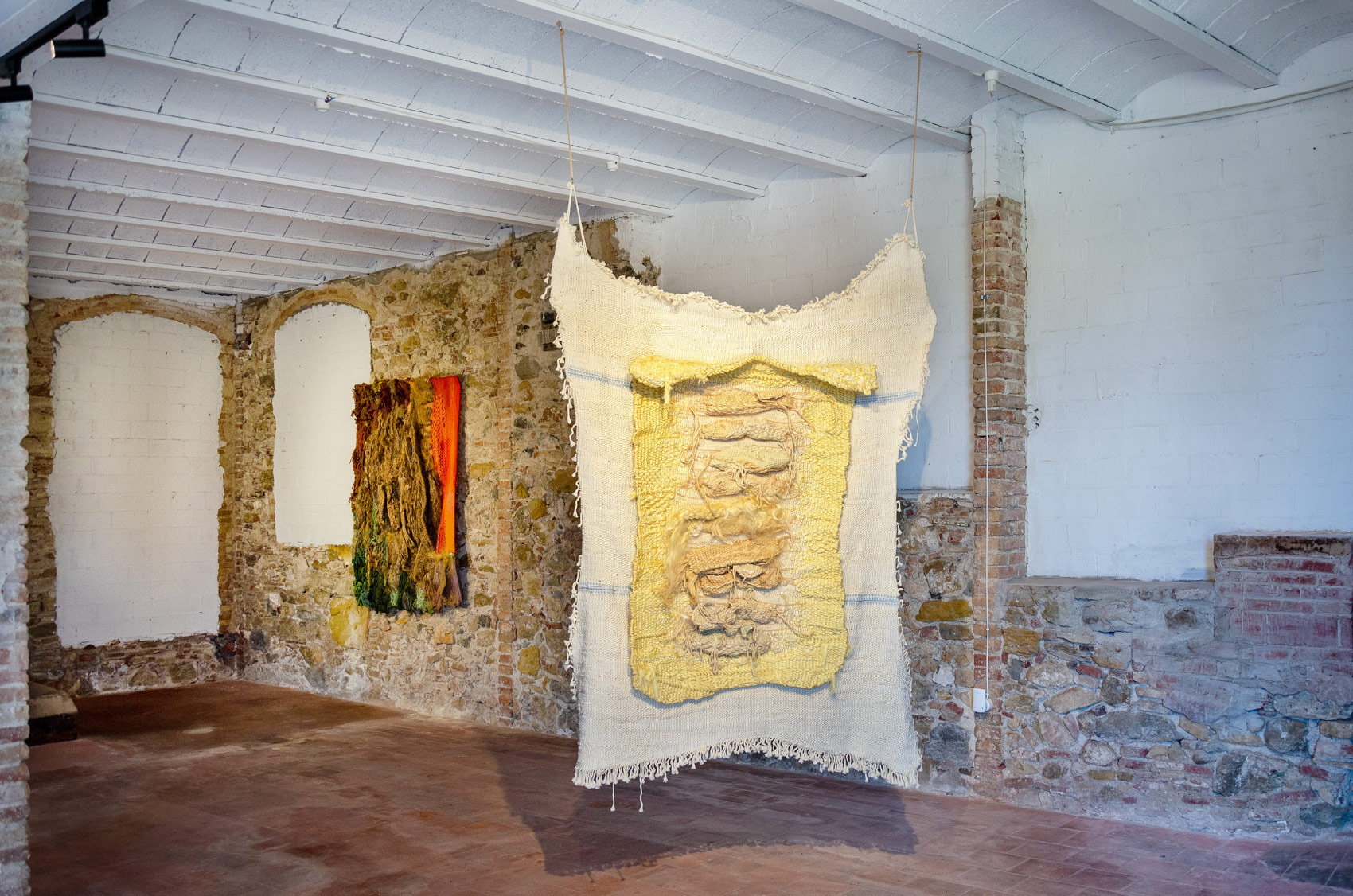

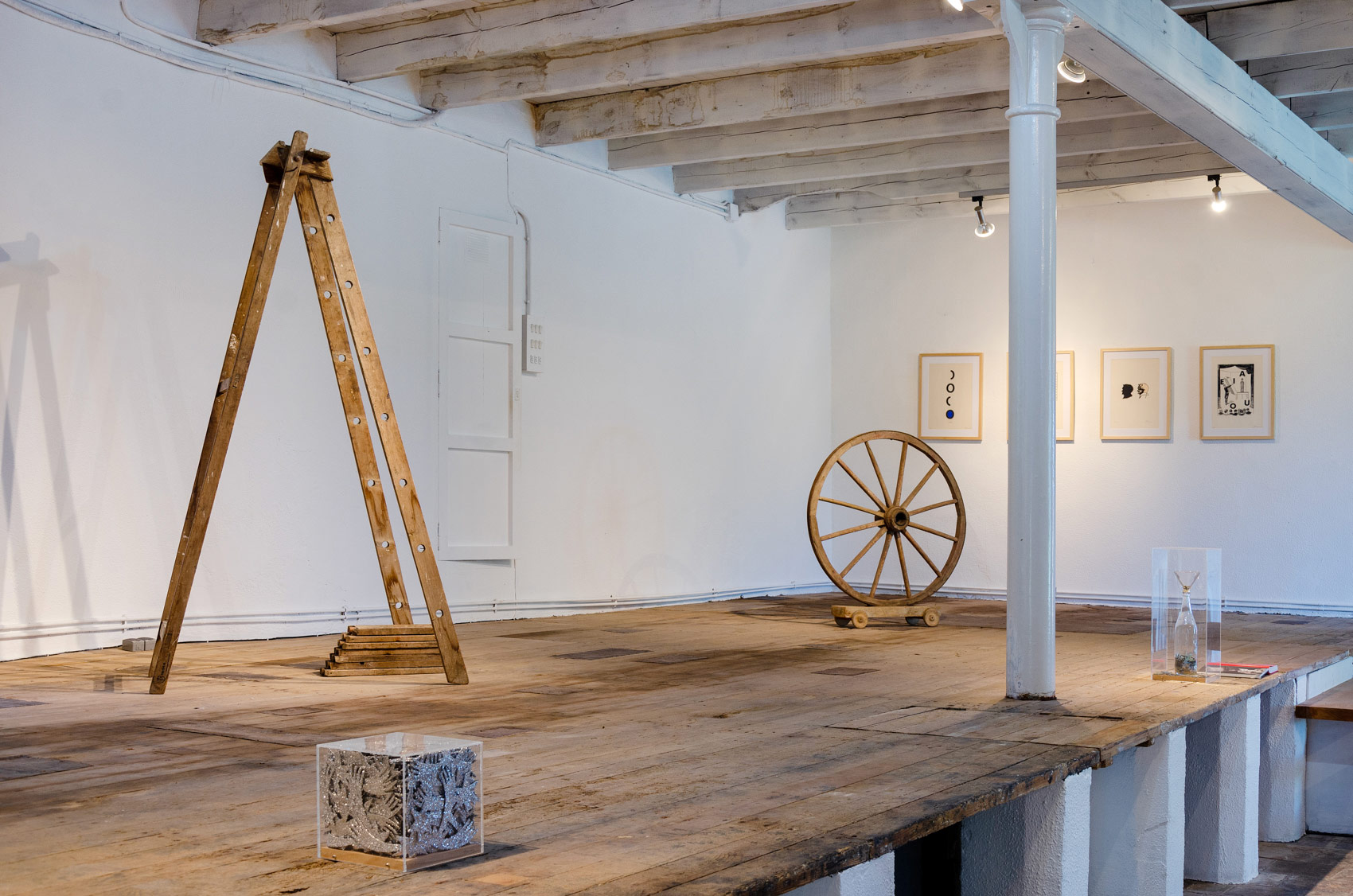

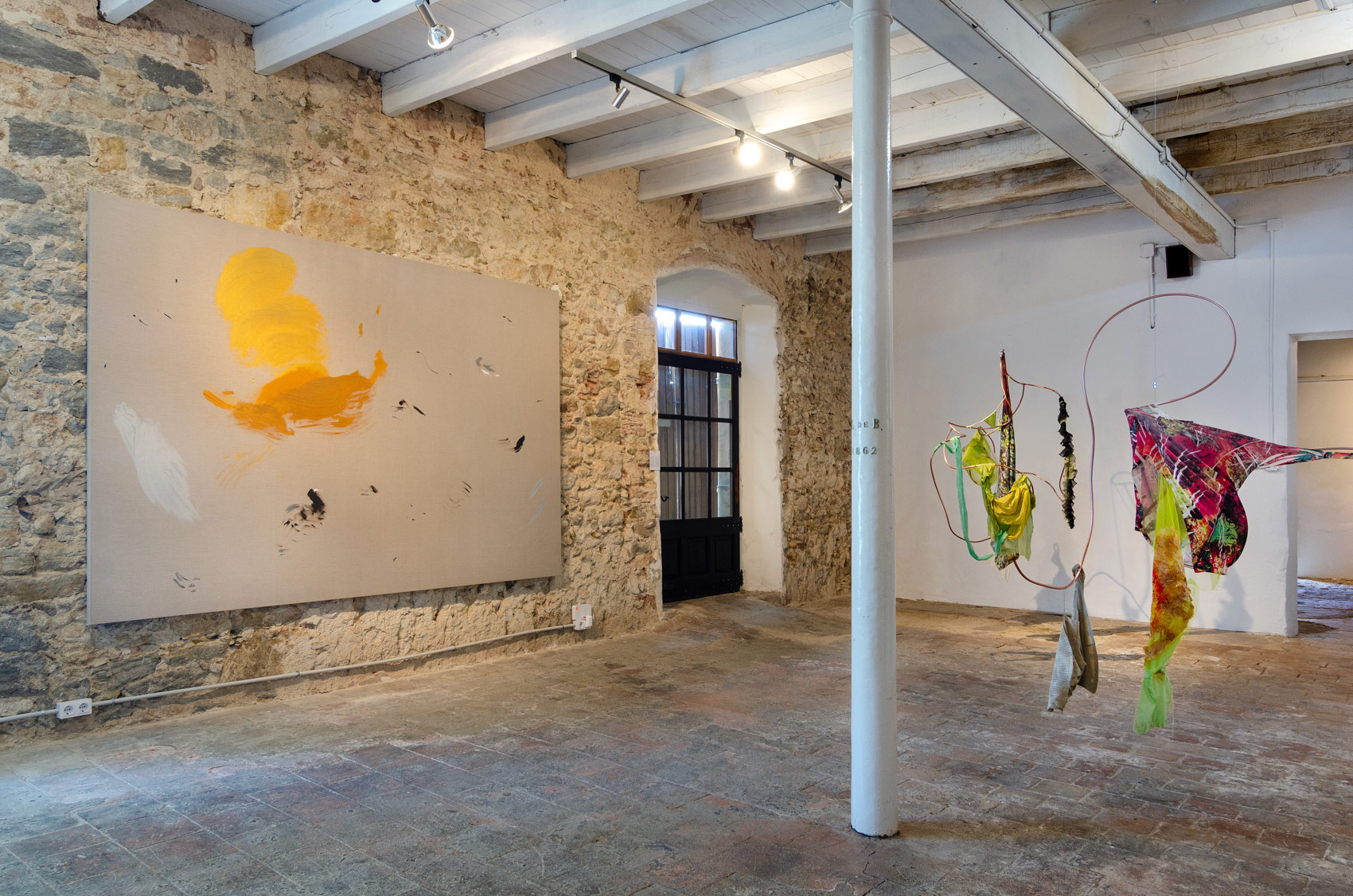



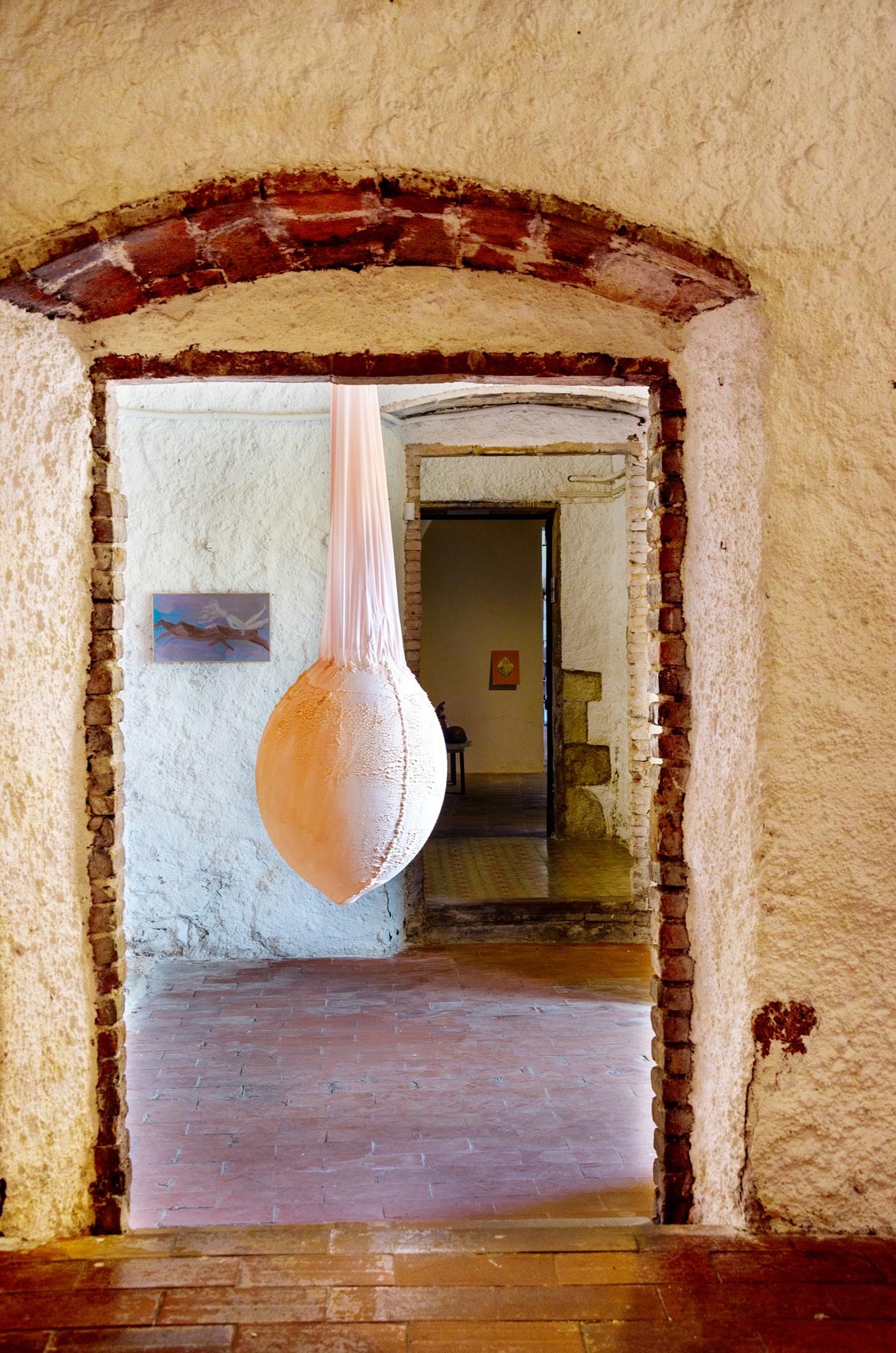

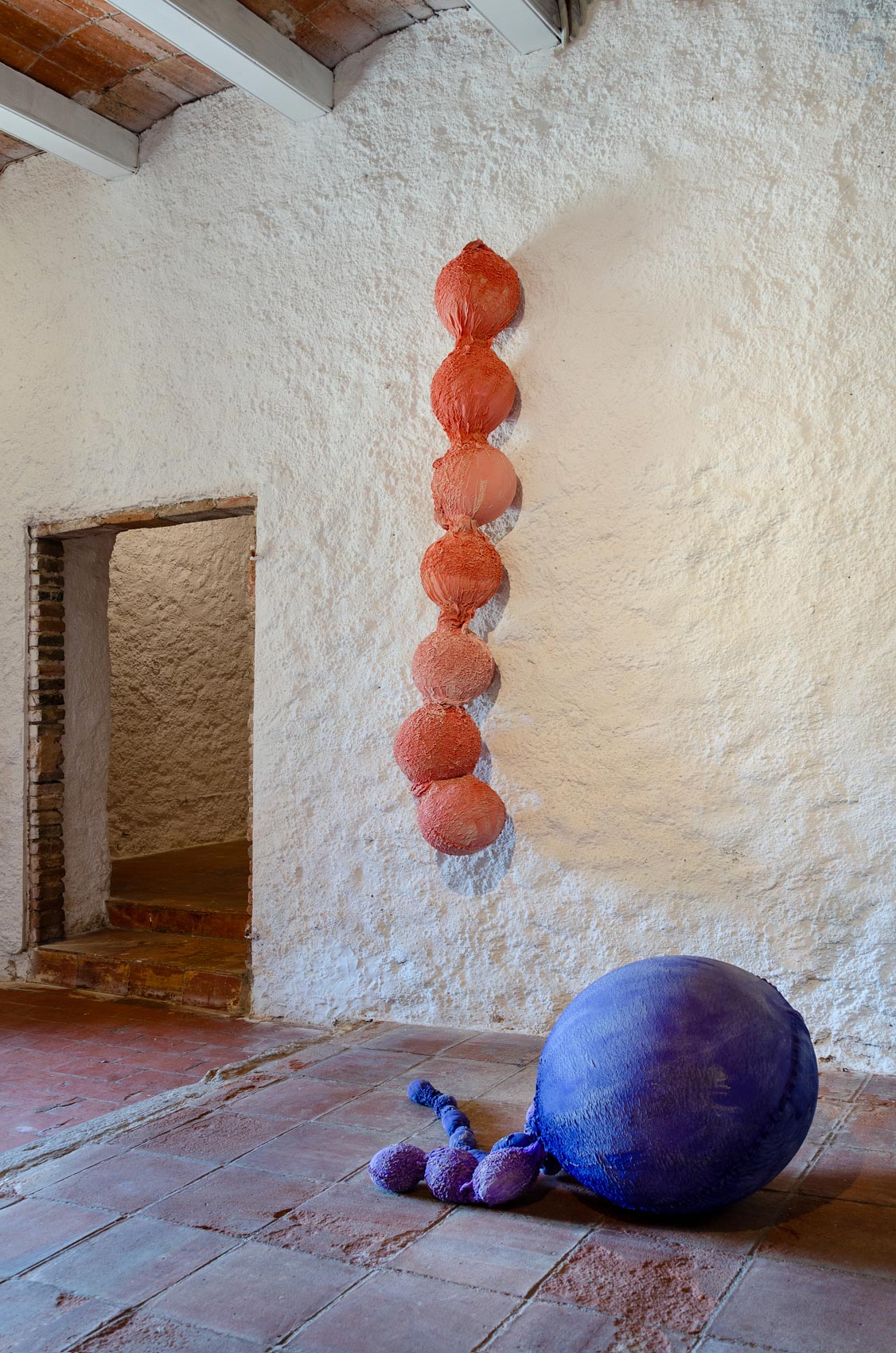


know more about
For the fourth consecutive year, the galleries Bombon and Prats Nogueras Blanchard are pleased to present at L’Antiga Farinera in Corçà (Empordà) their joint summer project with the exhibition Enlaire, opening to the public on the 22nd of June running until the 30th of August.
(Opening hours Tuesday to Sunday from 5 pm to 9 pm.)
Enlaire (Upwards). A summer story
– Text by Anna Dot
The heat crushes her, as if it were melting her flesh. Everything burns and weighs her down. All food has ceased to interest her. Her body only wants melon, watermelon, ice cream and water. Lots of water. She has made a rucksack out of the camping cooler and carries it in her backpack. It is very full. She has cut the watermelons into squares so that they fit perfectly with the shape of the cooler. It weighs a quintal, but right now it is a matter of survival, of literal life and death. She remembers that the day before yesterday she decided to flee the city for good when she saw the esparto sandals of a woman waiting at the bus stop catch fire. The red-hot asphalt was burning everything. Everything was on fire. Even her mental health and that of those around her. A week ago the hallucinations started. And they were not only hers, no. They were collective. Hallucinations of green, of forest, of humidity, of freshness that ended very badly, a pure nightmare. She realised this on the last day before the holidays, on her last guided tour for tourists at the Mies van der Rohe Pavilion.
As she was explaining the peculiarities of early 20th century modern architecture and functionalism to her foreign listeners, her voice cut out, interrupted by an overwhelming heat. She closed her eyes for a moment and reached into her bag for the bottle of water she was carrying to take a sip. In an instant, the whole house was surrounded by jungle. And she was not the only one to see it. The Japanese, Italian, and German tourists were seeing it too. And also a Brazilian architecture expert who told the group about the similarities between the place and Lina Bo Bardi’s Glass House. After a short while, all the tropical vegetation entered the building and the sky became cloudy, as if it was going to rain. There was even some thunder and the floor and walls half shooked. Our main character approached one of the palm trees, to touch it and, as she reached out her hand, she felt a strong burn that made her see her own hand on fire. She stepped back and the vision disappeared. She and the whole group were in an area lit by the sun streaming in from outside. The temperature there, behind the glass, must have been about 39 degrees. She apologised to the group and, claiming a dizziness typical of the feverish summer they were experiencing, announced them, still half dizzy, that the visit ended there. No one complained and everyone left.
Such was the heat that an experimental ceramist had begun to use the street as a kiln to fire her work. The heat of the atmosphere left the pieces with a finish characterised by occasional explosions of the material and the appearance of a semi-fired object. Having seen her work in this way, some restaurants had also tried to cook in the public space. Although they succeeded, they did not convince the clientele. People no longer want to eat anything hot. There was also the case of a popular magician-poet, who decided to take his magics out into the streets to entertain the poor citizens who could not leave the infernal core. What happened to him was that when he tried to do the first trick, in which he needed a dice, it began to dissolve and, before it lost its shape completely, he manipulated it with his hands as if he were rounding a piece of modelling clay, and turned it into a circle. A dice turned into a round dice! Now that’s magic and that’s poetry. The people applauded, amazed, and he ran home to put the piece in the fridge before it turned into a puddle. And all these experiences, which, narrated in this way, may seem quite extraordinary, for our protagonist, who experienced them first hand, were signs that everything was going to hell and that the urgency to flee from there was becoming more and more imminent. So, wearing plastic sandals, the soles of which were increasingly melting as she approached the exit of the city, she left the city centre at midnight, with her rucksack-fridge on her back and a headlamp on her head, along the side that reached the pine forest before it drove onto the beach a little later. She had to be careful not to get caught by the Sun halfway or her body wouldn’t take it. She would have a heart attack as so many people have had in recent summers of unbearable heat.
She reached the pines at six o’clock in the morning, when the first rays of sunlight were already beginning to colour things. She tried to sleep there, as best she could, amidst the din of the cicadas that resounded their evil songs in the early hours of the day. She closed her eyes and saw the hell she was in. Each pine needle on the ground was a small blaze, no more than an inch high. In the middle of them were two bodies stretched out, half invisible. Their souls had left them there, escaping from that Dantesque place. From the lower branches of the pine trees around the scene hung strange blankets that were camouflaged by the colours of the landscape. They looked like tapestries. One of them had a golden stain all over it, like the burning of a dry yellow wheat field awaiting the midsummer harvest. If she had planned to spend the day there, this had been a bad idea. Pine forests do not cool, they love fire because it is the element that helps them reproduce. When the ripe pine cones receive the heat of a fire, they open up and their pine cones fall, scattering and occupying the spaces of earth that the flames have cleared of other plants. On this free soil, the pine cones can germinate and grow into pine trees. This was definitely not a good place to be. She decided to take advantage of the fact that it was still early in the morning to eat a half-fresh piece of melon from the fridge and continue on her way.
At seven o’clock yesterday morning she could be seen walking towards the sea. She looked for all the shadows she could, even the ones she found under the big stones or the ones she imagined under the planes that passed from time to time in that fiery sky. Finally, she reached the beach before mid-day. Barefoot, the soles of her feet half burnt. She ran towards the water, dodging the crowds, jumping as best she could over the ends of other people’s towels to avoid touching the scorching sand. She left all her things at the water’s edge. That place where the children play castles and some adults stroll around cooling their feet. And she went into the sea, without even thinking about it, without even taking off the very thin and colorful dress she was wearing. She didn’t care. She had escaped from hell. She didn’t know where she would go now, she had no plan. The holidays were starting and she could spend them there, in the salt water. Going out from time to time to open the fridge and hydrate herself with something. She didn’t care about the rest, she didn’t care about anything else. She turned her back to the sand and looked at the horizon. She saw people floating on mats, donuts, flamingos, rainbows and other colourful shapes made of inflatable plastic. She looked as far as she could, and there she saw a unicorn floating and trotting to the rhythm of the surf. Above it was a girl as thin as a sheet of paper who suddenly took flight. A current of air carried her away. Her body looked like a liquid slab of some earthy material, a kind of mud, thin and wet, tinged with the green of the swimming costume. She flew out to sea and disappeared: another hallucination, or does the torrid summer make us clairvoyant?
She swam to some high rocks, a kind of islet close to the shore that at that moment could provide a minimum of shade. She got out of the water and stretched out there, near the umbrella of a Swedish family. And she fell asleep.
She woke up today, in the early hours of the morning. It must have been 4 or 5 o’clock at night. She sensed it by the horizon, which was already showing the tips of the approaching sunbeams. She saw, in the water, a unicorn like the one from the evaporated girl. She swam towards it and stretched it out. The waves allowed her to sleep on. And there, stretched out on the floating mythological animal, she now opens one eye and then the other. It is daylight and there is already a commotion of early families looking for the same thing as her, to escape the infernal summer. She looks at them all and shields her hand from the sun. She doesn’t want it to touch her face. The sky looks red to her, like the burning resistors of old electric stoves. She wishes she could melt into a piece of wet mud, or into a mouthful of water that the sun could evaporate as it did with yesterday’s girl and that she could rise up into the sky, as if all her cells were helium balloons. And up there she would encounter dust particles and icy water molecules, the kind that make up clouds, and she would probably be cold, but she would do well. And then maybe she would fall, pushed by the mid-afternoon summer shower, the one that sends everyone running off the beach. And she would fall on top of the water and, still a molecule, discover other forms of life. Plankton, micro plankton, plastics and micro plastics. Rounded unicellular or multicellular organisms, floating and colliding with each other and bouncing and swelling with air and squeezing and returning to their original shape and being carried along by the various currents of this warm sea. And maybe later she would sink a little and meet jellyfish of various colours or maybe it would just be the fabrics of her own dress that she would see from the outside as she sank, drifting along.
And that’s how she would spend the rest of the summer, with that song in the background on a loop, the one that says that todo está bien, todo está mal, si las medusas te reciben con alegría. Y por dentro van cantando, van pensando esta bella canción, con su melodía. No hay más aquí. Por eso déjate llevar, déjate llevar, déjate llevar por estas olas de paz… [1]
And if it were all like this, then she would know that at last she has escaped.
[1] “everything is fine, everything is bad, if the jellyfish welcome you with joy. And inside they are singing, they are thinking this beautiful song, with its melody. There is no more here. So let yourself go, let yourself go, let yourself be carried away by these waves of peace”
Joe Crepúsculo. El día de las medusas. On the album «Nuevo ritmo», 2011.
With many thanks to: Josep Royo, Manel Margalef, Museo de Arte Moderno de Tarragona, Anna Dot.
Read More
